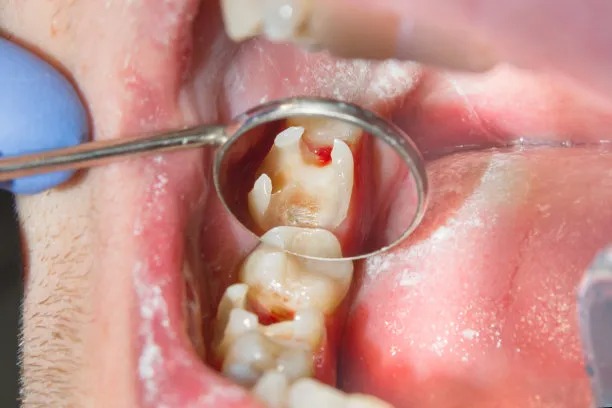Comprehensive Guide to Dental Implant Treatment Enhancing Your Smile and Restoring Confidence for a Healthier Future
Summary: Dental implant treatment has transformed the way we approach dental health, enabling individuals to enhance their smiles and restore their confidence dramatically. This comprehensive guide will delve into the intricacies of dental implants, detailing the importance of this treatment, the procedures involved, aftercare essentials, and the various benefits it provides. By understanding these key aspects, individuals will be empowered to make informed decisions towards achieving a healthier and more confident future.
1. Importance of Dental Implants for Oral Health

Dental implants play a crucial role in maintaining oral health, particularly for individuals who have lost teeth due to injury, disease, or decay. They serve as secure anchors that support artificial teeth, providing a robust solution that helps in preserving the jawbone structure. Unlike dentures or bridges, implants stimulate the surrounding bone, preventing the common issue of bone loss that often arises from missing teeth.
Moreover, dental implants significantly enhance the aesthetic aspect of one’s smile. When strategically placed, they blend seamlessly with natural teeth, restoring a visually appealing mouth. This aesthetic improvement contributes not only to better oral health but also boosts self-esteem, encouraging individuals to smile freely without embarrassment.
Additionally, dental implants improve overall function, allowing patients to eat and speak comfortably. Unlike removable dentures, which may shift or slip, implants provide stability that enables normal chewing and speaking functions, thus enhancing daily quality of life.
2. The Dental Implant Procedure Explained
The dental implant procedure generally involves several stages, beginning with a detailed consultation and examination. During this phase, the dental professional assesses the patient’s oral health and formulates a tailored treatment plan. Digital imaging techniques, such as X-rays or 3D scans, are often utilized to evaluate the bone structure and determine the ideal location for implant placement.
Once the planning is complete, the next stage is the surgical placement of the implant. This involves embedding a titanium post into the jawbone, which acts as the root of the artificial tooth. After the surgery, a healing period known as osseointegration occurs, where the bone fuses with the titanium post, providing a solid foundation for the crown.
Finally, once the implant has fully integrated with the bone, an abutment is placed to connect the implant to the crown, which is customized to fit perfectly with the neighboring teeth. This multi-step process requires a skilled hand and patience but results in a long-lasting restoration that mirrors the natural tooth’s appearance and function.
3. Aftercare for Lasting Implant Success
Post-procedure care is crucial to ensure the longevity of dental implants. Patients are generally advised to maintain stringent oral hygiene practices, including regular brushing and flossing, to prevent any infections around the implant site. Routine dental check-ups are equally essential for monitoring the implant’s integrity and ensuring that the surrounding tissues remain healthy.
Additionally, individuals should be mindful of their diet, particularly during the initial healing phase. Soft foods are recommended to avoid putting excessive pressure on the newly placed implants. As healing progresses, patients can gradually reintroduce hard or chewy foods while still being cautious to prevent any damage.
Moreover, avoiding harmful habits such as smoking or excessive alcohol consumption is encouraged, as these can hinder the healing process and increase the risk of implant failure. With proper care and lifestyle adjustments, dental implants can last many years, providing ongoing benefits to oral health and confidence.
4. Benefits Beyond Aesthetic Improvement
The advantages of dental implants extend far beyond cosmetic enhancements. One significant benefit is their durability and longevity; with proper care, dental implants can last for decades, making them a worthwhile investment in dental health. This permanence means fewer visits to the dentist for replacements or repairs, ultimately saving time and money.
Furthermore, dental implants contribute to overall health, as they reduce the risk of oral health complications associated with missing teeth. By providing a stable solution, they minimize the chances of gum disease and other dental issues. The psychological benefits cannot be understated either; many patients report a significant boost in self-confidence after undergoing implant treatment.
Lastly, dental implants encourage a more active lifestyle. Individuals with complete teeth often feel more inclined to engage in social activities, eat a wider variety of foods, and embrace life fully. This holistic improvement in health and confidence leads to an overall enhancement of quality of life.
Summary:
In conclusion, dental implant treatment represents a remarkable advancement in dental care that not only addresses aesthetic concerns but also promotes long-term oral health and functional efficiency. By comprehensively understanding the process, benefits, and importance of implants, individuals can take empowered steps toward enhancing their smiles and restoring their confidence.
This article is compiled by Vickong Dental and the content is for reference only.



